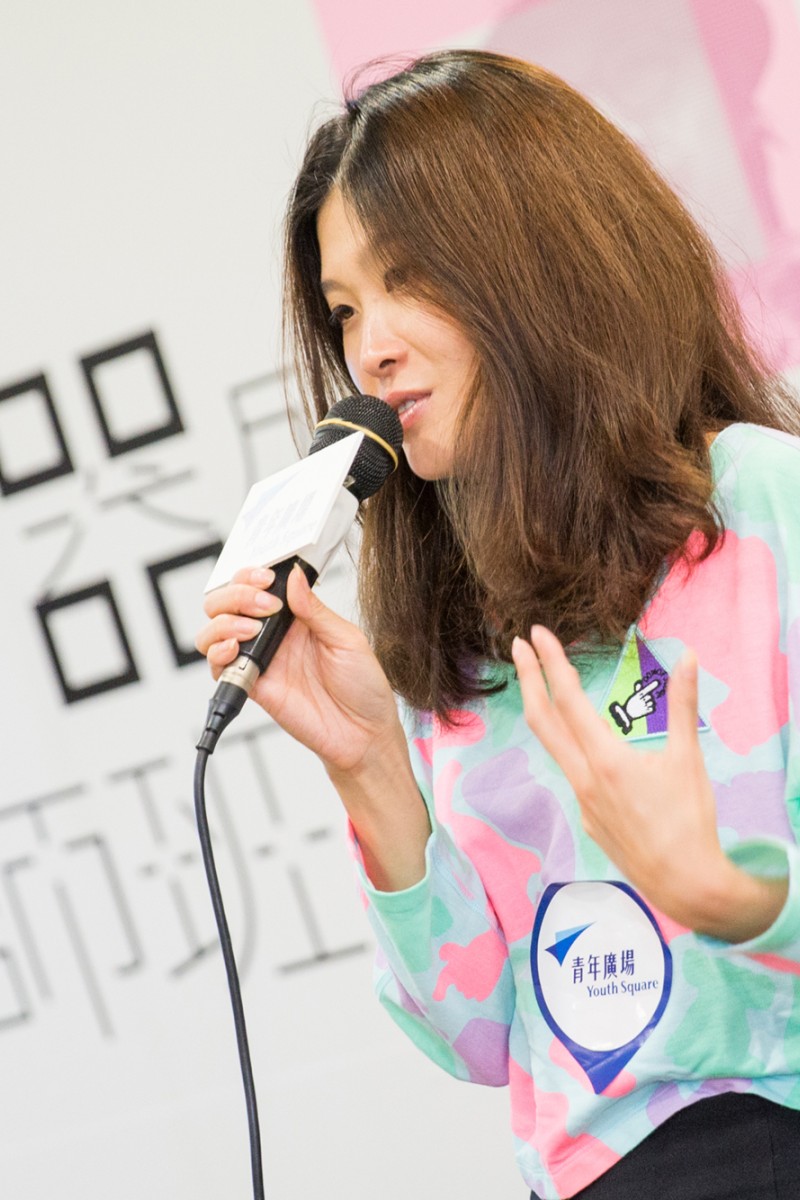
Director Heiward Mak reveals what's needed to make a good movie (Rejection is necessary)
Ever dreamed of being a movie director? This filmmaking course at Youth Square adds a healthy dose of reality to film fantasy
 Heiward Mak says even crazy ideas have to make sense.
Heiward Mak says even crazy ideas have to make sense.Making a movie is a complex job that's not easy to learn, especially in four lessons. But if anyone could be up for the task it would be award-winning director Heiward Mak Hei-yan. We caught up with her recently when she was teaching a series at Youth Square. Instead of trying to teach her students everything, Mak gave them the basic concepts and then let them make a basic storyboard to present their ideas.
Actually making the film - from finding actors to shooting and editing - is their final assignment. Mak, who co-wrote the romantic comedy Love in a Puff, says: "Preparation and pre-production are both the easiest and hardest parts of the creative industry. What they're doing is like a trailer or preview. It's a preview of the future, a pitch basically."
It's more than just a piece of homework, it's a way for students to show off their creativity, ambitions, and craziest ideas. "Crazy ideas are good. One student made a Western set in Hong Kong," Mak says. "Hong Kong has limited genres of movies, so we need new themes and new ways to present the themes."
Of course, in a good movie, even crazy ideas still have to make sense. "Make understandable movies. Don't be boring - have fun! But the goal is to have the audience understand your movie and watch it, not to make an incomprehensible movie," Mak says.
Mak wants her students to understand what it takes - and what it feels like - to have a finished product. "Go for a modest goal: one shot, a single prop, 30 seconds of good footage," she says. "Not something too hard to execute and ending in five minutes of bad footage."
A million things can go wrong when making a film, and that can be frustrating, but it's an important lesson.
"They want to create but I need to rid them of their blind spot to do that. They need to experience failure and learn to accept it and keep going," says Mak. "Students don't always have experience in being turned down. That can kill passion quickly so this trains them for that."
Besides the technical skills needed for filmmaking, every director must develop their creativity. "Creativity is something you have to grow and nurture, it's a give-and-take, an interactive process," says Mak. "I find teachers have the mentality of 'wishing iron would become steel' - but teaching isn't smithing or alchemy. You can't manufacture it and pour it into a soulless metal object. It comes from life."
Bao Law Kin-ho, 22, a systems engineering student at Chinese University, agrees. "Movies now are more beautiful," he says. "Better lighting, more skills and such, but the central creativity element is weaker."
Fellow student Libra Chung Hoi-yin, 26, adds: "Creativity should not be limited. Hong Kong needs more diverse movies."
Youth Square ran the courses to expose young Hongkongers to these sorts of arts, says Youth Square's Deven Chan. "To inspire them and allow them to share experiences with accomplished people in the field."
The plan seemed to have worked. Both students said the Youth Square course opened their eyes to a new way of thinking. "During her lessons, she talks about film and shares her knowledge," says Law. "It's not like a normal course where we just learn things; the main mode of teaching is feedback and discussion."
"She told us about her own hands-on experiences in filmmaking and would show us many, many references in other films worth watching," says Chung. She loved Mak's personal approach, and wants to change from working in fashion, to the film industry. "I'm thinking of moving to a desk job and doing filmmaking part-time during my time off," she says.
Law, meanwhile, is ready to just go for it, no matter the difficulties. "I plan on going in full time, starting from the bottom," he says. "My mind's made up."
